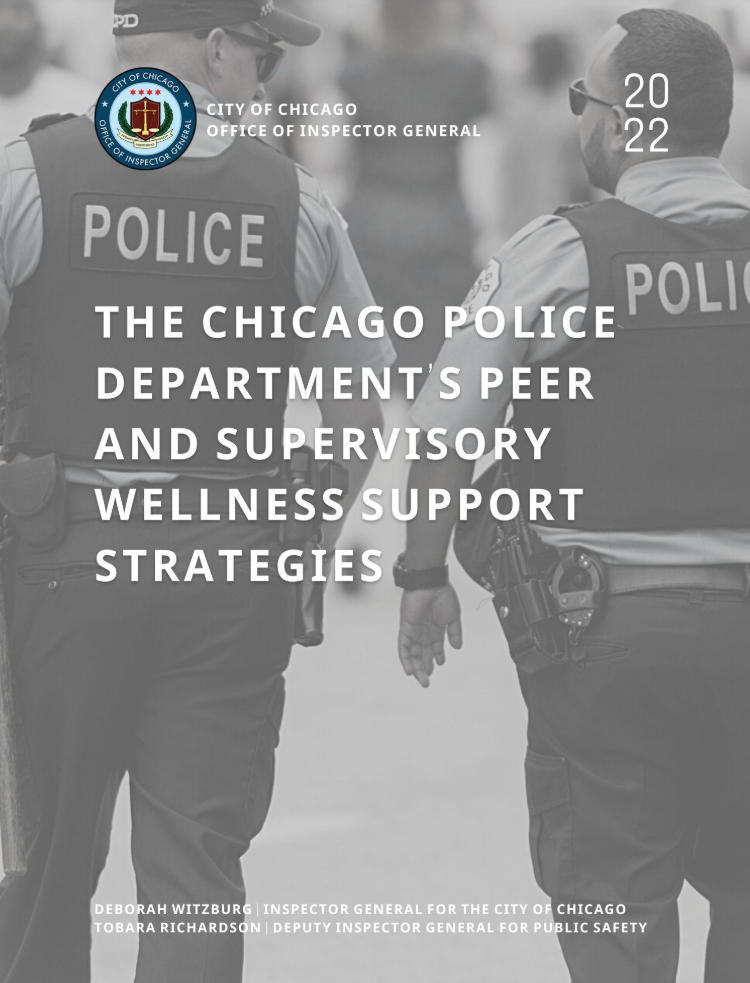The Chicago Police Department’s Peer and Supervisory Wellness Support Strategies
Summary
The Office of Inspector General conducted an inquiry into two Chicago Police Department strategies to support members’ mental health and wellbeing.
Executive Summary
The two officer wellness support strategies evaluated here are (1) the Peer Support Program (PSP) and (2) CPD’s reliance on frontline supervisors to monitor their officers’ mental health and refer them to services as needed.
Most of CPD’s existing officer wellness programs are run through its Professional Counseling Division (PCD). PCD’s services include the Employee Assistance Program, Traumatic Incident Stress Management (TISM) Program, Alcohol-use and Substance-use Services Program, and PSP. Additionally, the Department charges supervisors with identifying members who may be struggling with their mental health and referring them to professional services as needed, whether within or outside the programs offered through PCD.
The objectives of this inquiry were to determine: (1) whether PSP is designed and implemented in accordance with best practices as defined by mental health experts and the policing profession; and (2) whether CPD adequately prepares its supervisors to identify members in need of mental health assistance. OIG opted to review just two of CPD’s officer wellness support strategies because the full universe of officer wellness strategies is too broad to review comprehensively in the space of a single report. Other CPD officer wellness strategies and PCD programs may be topics of future OIG inquiry.
Subscribe to the OIG Bulletin to get notified about future publications.

